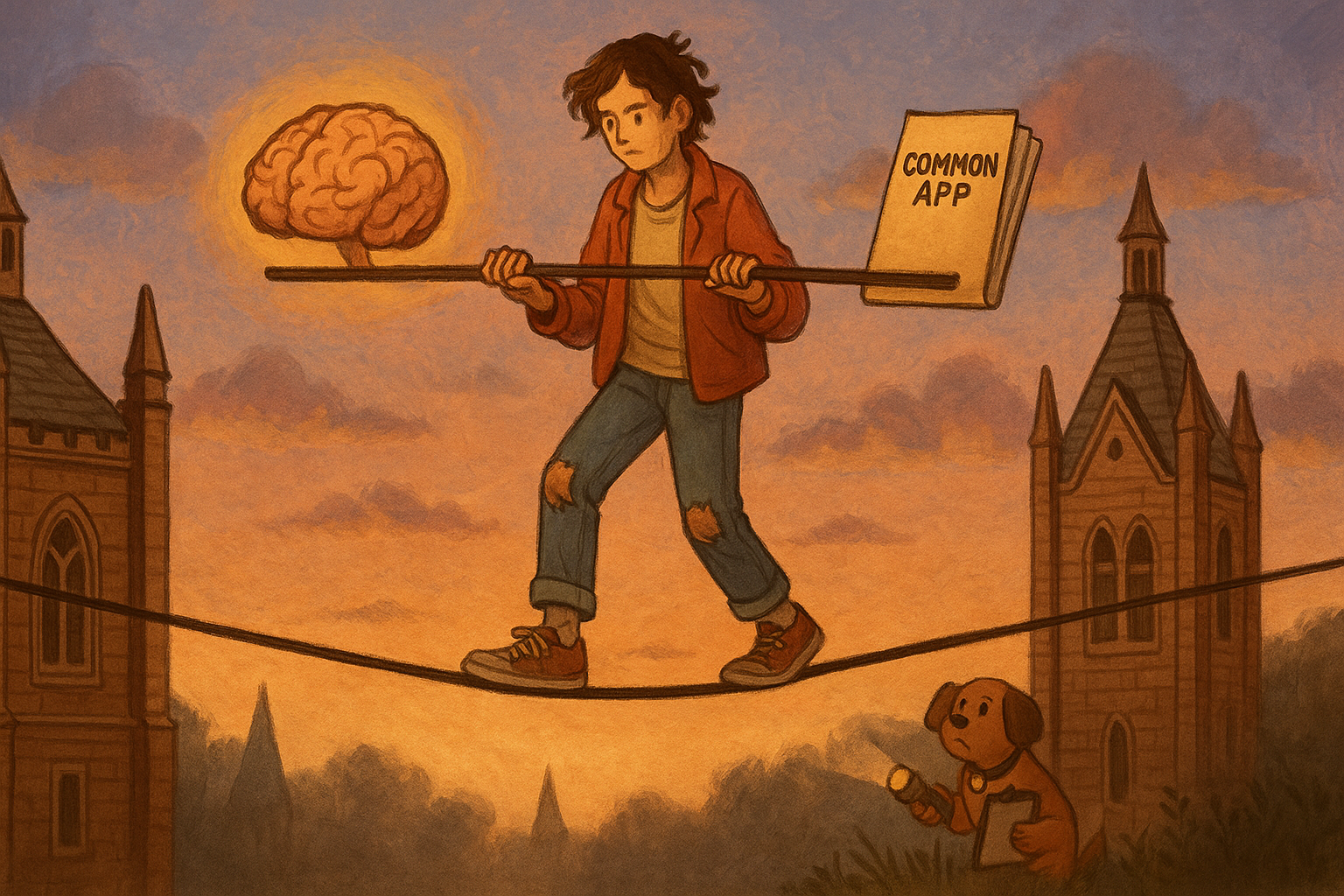
How to Write About Mental Health in Your College Essay
Here’s the truth: mental health can be an important part of your college essay—but only if it reveals something meaningful about your growth. Colleges don’t need to see another “I overcame my struggle with depression” story. They want to understand how your mental health challenges, like anxiety, OCD, ADHD, or bipolar disorder, have truly shaped your worldview and actions. If mental health is part of your story, here’s how to write about it in a way that genuinely resonates.
1. Name the Disorder, But Show How It Affects You Specifically
Don’t shy away from naming your condition—whether it’s depression, anxiety, ADHD, or OCD—but don’t stop there. Colleges want to know how your specific condition impacts your life. Focus on the personal details that make your experience unique. It’s not enough to just say, “I have ADHD.” Show how it specifically affects your thoughts, actions, and decisions. Describe the way you experience it—not just how the condition is “supposed” to play out.
2. Focus on How It Feels, Not Just the Label
Once you name your disorder, focus on describing how it feels to live with it. This is about you, not a textbook definition. It’s essential to paint a vivid picture of your lived experience, showcasing both the highs and lows without over-explaining the symptoms. Let your narrative express the emotional texture of your experience.
3. Show Your Growth, Not Just Your Struggle
Your essay should show how you’ve navigated your mental health struggles and how you’ve grown through them. It’s not just about talking about the hardship; it’s about how you’ve learned from it and what you’ve done to adapt. Admissions officers want to know that you’re capable of growth and resilience, not just that you’re struggling.
4. Don’t Let Mental Health Define You
While your mental health struggles are important, they shouldn’t define your entire narrative. You are more than your diagnosis, and your essay should reflect that. It’s important to discuss the challenges, but also to show how you’ve continued to grow, how you’ve learned to manage, and how you’ve developed as a person in spite of, or even because of, those challenges.
5. Show, Don’t Just Tell
One of the best ways to show how mental health affects you is through concrete examples. Don’t just tell the reader that your disorder affects your day-to-day life. Show them. Use specific moments, actions, and situations that highlight how you navigate your condition. This will help the admissions officer see the real you, not just a clinical explanation.
6. Avoid the "I Overcame This" Narrative
It's important to remember that mental health isn’t something you “overcome” in a neat, linear way. There are ups and downs, and your struggles won’t necessarily disappear after one successful essay. Be honest about your progress, and acknowledge that your growth is ongoing. Colleges want to see that you’re resilient, that you can handle adversity, and that you’ve learned something along the way.
The Bottom Line:
Writing about mental health in your college essay can be an opportunity to share an important part of who you are, but only if you do it right. Name your disorder, but don’t stop there. Go deeper. Show how it affects your life specifically, describe how it feels, and, most importantly, focus on how it’s shaped you, not just as someone with a diagnosis, but as a person. Show your growth, your resilience, and your ability to navigate life, even when it’s tough. Remember: your mental health is just one part of your story. It’s how you live with it that defines who you are.

Post a comment